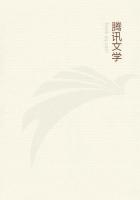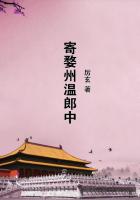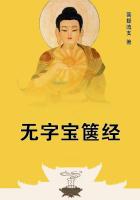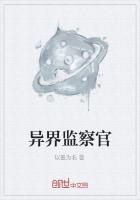So much then for the objects of mathematics; we have said that they exist and in what sense they exist, and in what sense they are prior and in what sense not prior. Now, regarding the Ideas, we must first examine the ideal theory itself, not connecting it in any way with the nature of numbers, but treating it in the form in which it was originally understood by those who first maintained the existence of the Ideas. The supporters of the ideal theory were led to it because on the question about the truth of things they accepted the Heraclitean sayings which describe all sensible things as ever passing away, so that if knowledge or thought is to have an object, there must be some other and permanent entities, apart from those which are sensible; for there could be no knowledge of things which were in a state of flux. But when Socrates was occupying himself with the excellences of character, and in connexion with them became the first to raise the problem of universal definition (for of the physicists Democritus only touched on the subject to a small extent, and defined, after a fashion, the hot and the cold; while the Pythagoreans had before this treated of a few things, whose definitions-e.g. those of opportunity, justice, or marriage-they connected with numbers; but it was natural that Socrates should be seeking the essence, for he was seeking to syllogize, and 'what a thing is' is the starting-point of syllogisms; for there was as yet none of the dialectical power which enables people even without knowledge of the essence to speculate about contraries and inquire whether the same science deals with contraries; for two things may be fairly ascribed to Socrates-inductive arguments and universal definition, both of which are concerned with the starting-point of science):-but Socrates did not make the universals or the definitions exist apart: they, however, gave them separate existence, and this was the kind of thing they called Ideas. Therefore it followed for them, almost by the same argument, that there must be Ideas of all things that are spoken of universally, and it was almost as if a man wished to count certain things, and while they were few thought he would not be able to count them, but made more of them and then counted them; for the Forms are, one may say, more numerous than the particular sensible things, yet it was in seeking the causes of these that they proceeded from them to the Forms. For to each thing there answers an entity which has the same name and exists apart from the substances, and so also in the case of all other groups there is a one over many, whether these be of this world or eternal.
Again, of the ways in which it is proved that the Forms exist, none is convincing; for from some no inference necessarily follows, and from some arise Forms even of things of which they think there are no Forms. For according to the arguments from the sciences there will be Forms of all things of which there are sciences, and according to the argument of the 'one over many' there will be Forms even of negations, and according to the argument that thought has an object when the individual object has perished, there will be Forms of perishable things; for we have an image of these. Again, of the most accurate arguments, some lead to Ideas of relations, of which they say there is no independent class, and others introduce the 'third man'.
And in general the arguments for the Forms destroy things for whose existence the believers in Forms are more zealous than for the existence of the Ideas; for it follows that not the dyad but number is first, and that prior to number is the relative, and that this is prior to the absolute-besides all the other points on which certain people, by following out the opinions held about the Forms, came into conflict with the principles of the theory.
Again, according to the assumption on the belief in the Ideas rests, there will be Forms not only of substances but also of many other things; for the concept is single not only in the case of substances, but also in that of non-substances, and there are sciences of other things than substance; and a thousand other such difficulties confront them. But according to the necessities of the case and the opinions about the Forms, if they can be shared in there must be Ideas of substances only. For they are not shared in incidentally, but each Form must be shared in as something not predicated of a subject. (By 'being shared in incidentally' I mean that if a thing shares in 'double itself', it shares also in 'eternal', but incidentally; for 'the double' happens to be eternal.) Therefore the Forms will be substance. But the same names indicate substance in this and in the ideal world (or what will be the meaning of saying that there is something apart from the particulars-the one over many?). And if the Ideas and the things that share in them have the same form, there will be something common: for why should '2' be one and the same in the perishable 2's, or in the 2's which are many but eternal, and not the same in the '2 itself' as in the individual 2? But if they have not the same form, they will have only the name in common, and it is as if one were to call both Callias and a piece of wood a 'man', without observing any community between them.
But if we are to suppose that in other respects the common definitions apply to the Forms, e.g. that 'plane figure' and the other parts of the definition apply to the circle itself, but 'what really is' has to be added, we must inquire whether this is not absolutely meaningless. For to what is this to be added? To 'centre' or to 'plane' or to all the parts of the definition? For all the elements in the essence are Ideas, e.g. 'animal' and 'two-footed'. Further, there must be some Ideal answering to 'plane' above, some nature which will be present in all the Forms as their genus.
5

